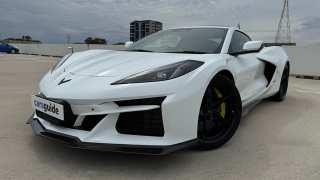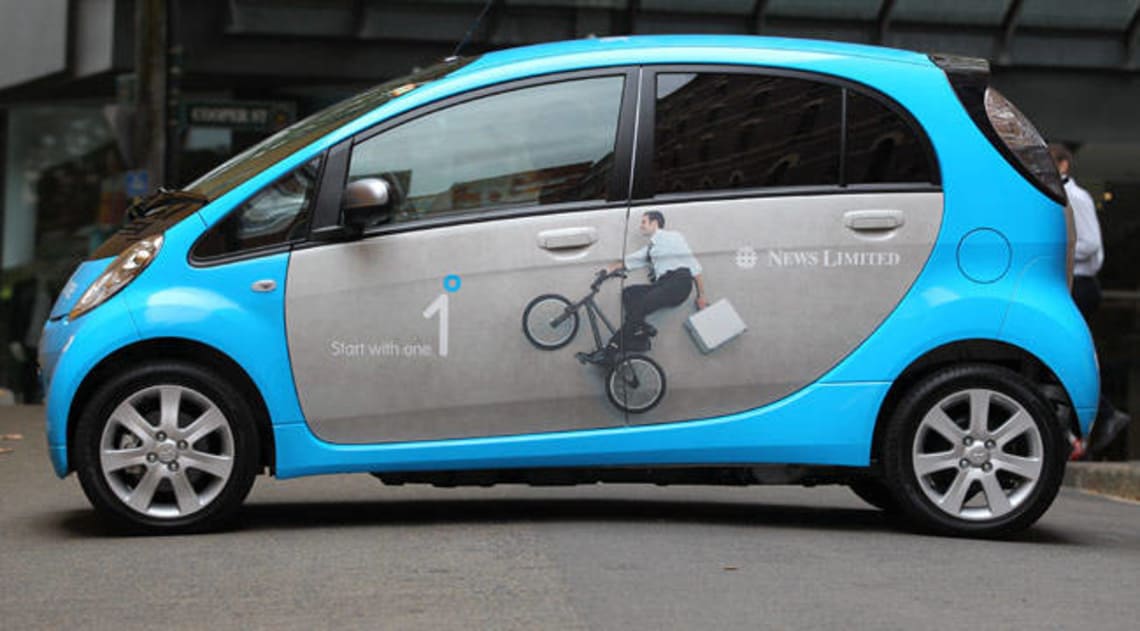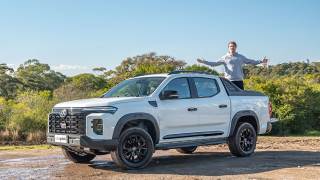
Annual car running costs
- Holden Commodore
- Holden Commodore 2004
- Holden Commodore 2002
- Holden Commodore 1997
- Holden Commodore 1999
- Holden Commodore 2000
- Holden Commodore 2001
- Holden Commodore 2003
- Holden Commodore 1989
- Holden Commodore 1988
- Holden Commodore 1995
- Holden Commodore 1996
- Holden Commodore 1998
- Holden Commodore 1990
- Holden Commodore 1991
- Holden Commodore 1992
- Holden Commodore 1993
- Holden Commodore 1994
- Holden News
- Holden Wagon Range
- Holden Sedan Range
- Wagon
- Sedan
- Holden

The annual RACQ Vehicle Running Costs Survey has found that the first electric car available in Australia - Mitsubishi's iMiEV - costs between $246.46 to $265.23 a week to run, spokesman Steve Spalding said.
This compares with $256.50 for a Holden Commodore while the Toyota Prius C hybrid costs $159.79 a week. However, charging the electric Mitsubishi costs only 3.07c/km while the Prius C costs 6.78c/km.
Spalding says their survey also takes into account other owner costs such as the purchase price, interest payments, registration, insurance, servicing and depreciation. "The main reasons for the higher total running cost for an electric vehicle is the higher purchase price which means higher interest payments, and the as yet unknown depreciation factor," he said.
The Mitsubishi costs $48,000 while the Nissan Leaf electric vehicle has just hit the showroom floor at $51,000. "Before electric cars become viable there needs to be good demand on the second-hand market so there is a higher resale value," he said.
"Plus over time manufacturers will reduce prices." It is the first time the survey has included an electric vehicle. The survey found the cheapest car to run is again the Suzuki Alto at $116.70, down $2.77 since last year, and the most expensive is again the Toyota LandCruiser GLX at $398.16 up $9.44.
Spalding said that instead of buying an electric car, families could save thousands of dollars annually by choosing a lighter, smaller car. "You could save around $32 per week, or $1,707.92 a year by purchasing a medium-size car instead of a large car,” he said.
“Downsizing from an all-terrain 4WD to a compact SUV could save you $111.67 per week, or $5,807 every year." Mr Spalding added that even switching between engine sizes in the same class could mean good savings on running costs - without sacrificing performance.
“High fuel prices are forcing many owners away from large vehicles into medium or smaller cars to save money. But Ford's four-cylinder turbo petrol 2.0 litre Falcon EcoBoost and the 4.0 litre LPG Falcon could help those looking to buck that trend,” Spalding said.
“The EcoBoost has all the features and performance of a large car, but it will cost motorists $240.25 per week, compared to the Ford Falcon 4.0 litre petrol at $253.26 per week. That‟s a saving of almost $700 per year.
“Meantime, Ford's 4.0 litre LPI Falcon, which runs on LPG, will cost motorists $232.42 per week, which is $400 a year cheaper than the EcoBoost and $1,100 a year less than the petrol 4.0 litre Falcon,” he said.
| Most expensive cars | ||
| Landcruiser GXL diesel | $20,704.29pa | or $398.16pw |
| Prado GXL V6 petrol | $17,337.29pa | or $333.41pw |
| Pajero GLS diesel | $16,376.10pa | or $314.93pw |
| Patrol ST diesel | $16,214.33pa | or $311.81pw |
| Merc C200 1.8T | $15,897.99pa | or $305.73pw |
| Least expensive cars | ||
| Suzuki Alto GL | $6,068.29pa | or $116.70pw |
| Barina Spark 1.6L | $6,351.57pa | or $122.15pw |
| i20 Active | $6,843.22pa | or $131.60pw |
| Micra ST 1.2L | $6,882.30pa | or $132.35pw |
| Swift GA 1.4L | $6,978.57pa | or $134.20pw |
(source RACQ Vehicle Running Costs Survey)










Comments